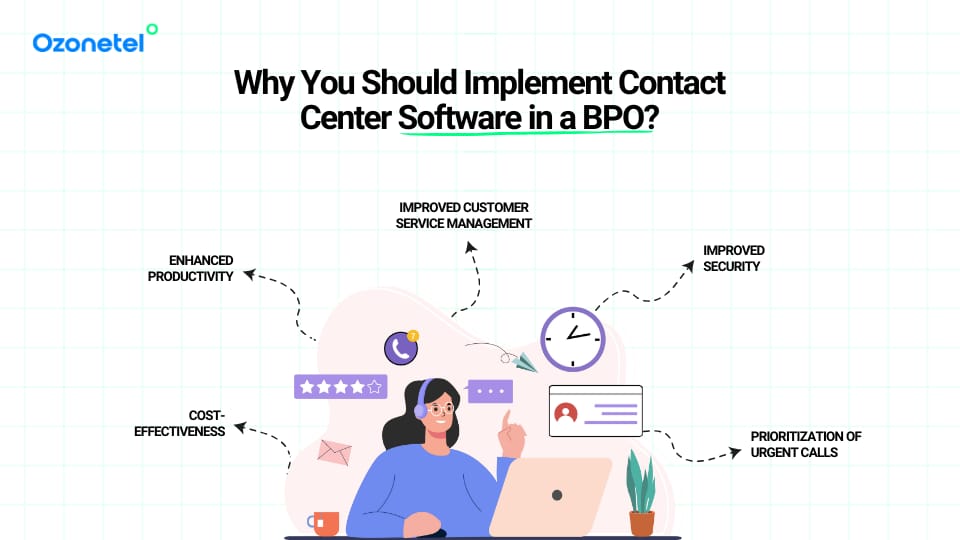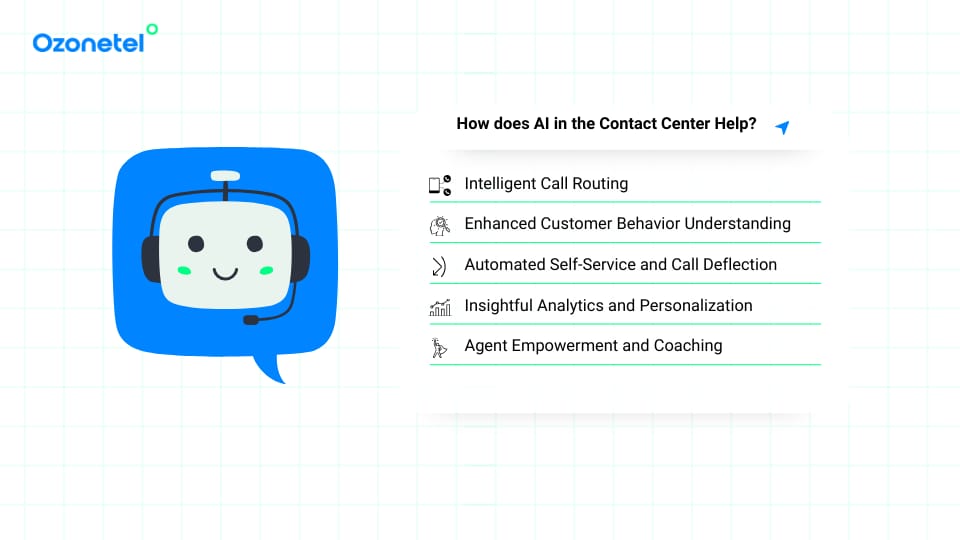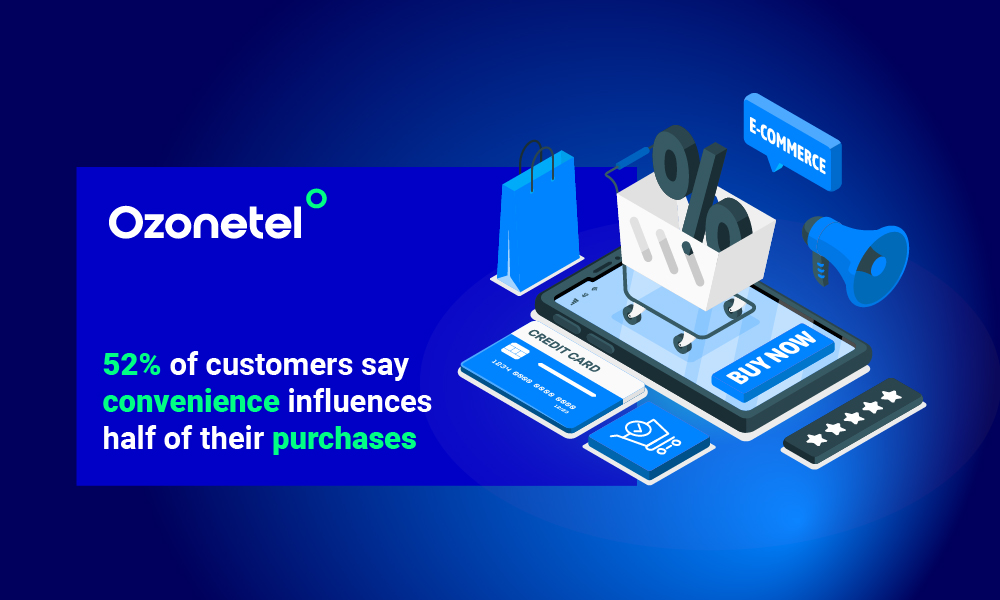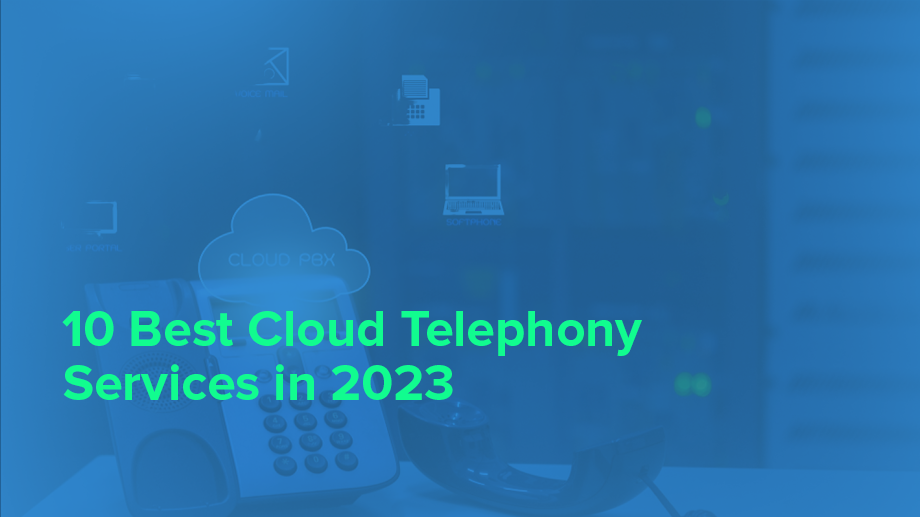- Resources
- What is Contact Center Software?
What is Contact Center Software?

A customer’s perception of a brand can quickly change due to one instance of poor customer service. This might include long hold times, dropped calls, unhelpful menus, or curt responses. In fact, 80% of customers say the experience a company provides is as important as its product or services.
But what if you could break free from these limitations and have a contact center software that truly puts the customer first?
The traditional contact center model has long been criticized for its inability to provide customers a seamless and personalized experience.
However, modern contact center software revolutionizes how you interact with your customers. It helps you turn your contact center into an omnichannel customer-centric hub, where every interaction is a chance to build loyalty and drive retention.
In this guide, we’ll explore what contact center software is, its top features, and how companies like yours are using it to scale and drive success. Keep reading!
In this article, we will explore:
- 1. Contact Center Meaning
- 2. What is Contact Center Software?
- 3. Call Center Software Vs. Contact Center Software
- 4. Why You Should Implement Contact Center Software in a BPO
- 5. Types of Contact Center Software
- 6. What all Features Contact Center Provides
- 7. How does AI in the Contact Center Help?
- 8. Conclusion: How Ozonetel Can Help You
Contact Center Meaning
A contact center is a centralized operation that handles all incoming and outgoing customer communications across various channels, including phone calls, emails, live chats, and social media interactions. It integrates people, processes, and technology to offer efficient customer support and create high-quality interactions that drive customer satisfaction and business growth. Contact centers leverage robust analytics and enterprise-wide visibility to streamline customer experiences and foster strong relationships.
Contact center technology supports various business functions, from traditional call centers where agents handle only phone calls to multichannel or omnichannel contact centers that enable agents to seamlessly manage customer interactions across multiple touchpoints. With evolving customer expectations and technological advancements, modern contact centers empower businesses to be available through diverse communication channels, providing a superior customer experience.
Also, by integrating with CRM systems, contact centers can track, coordinate, and oversee all interactions between customers and the organization, ensuring a seamless and personalized journey across multiple channels.
What is Contact Center Software?
Contact center software is a comprehensive set of applications designed to streamline and enhance customer interactions across various channels. It automates key processes within a contact center, enabling organizations to control costs, develop agent skills, monitor and improve the customer experience, and maintain compliance with laws and regulations. This powerful technology has evolved significantly, often incorporating emerging technologies such as artificial intelligence to deliver superior customer service.
Contact center software can be hosted either on-premises or in the cloud through a software-as-a-service (SaaS) model. On-premises solutions offer greater control but require substantial IT overhead for hardware, updates, security, and support. On the other hand, cloud-based contact center software is typically more cost-effective and flexible, with vendors assuming these responsibilities. This has led to a growing trend of contact centers migrating to the cloud, leveraging its scalability and convenience.
For example, Ozonetel’s contact center software boosts sales and customer service agent performance while providing managers comprehensive control and visibility. Ozonetel offers innovative features such as a modern IVR for proactive inbound calling experiences, seamless CRM integrations with popular platforms like Hubspot and Salesforce, and advanced capabilities like smart routing, ACD, and sentiment analysis.
Call Center Software Vs. Contact Center Software
Businesses often rely on specialized software solutions tailored to their needs when managing customer interactions. Call center software and contact center software are two such solutions that facilitate communication between customers and agents, but they serve different purposes and offer distinct features.
Here is a comparison table outlining the differences between call center software and contact center software:
| Feature | Call Center Software | Contact Center Software |
|---|---|---|
| Communication Channels | Primarily focused on voice calls. | Supports multiple communication channels such as voice calls, emails, chats, and social media. |
| Integration Capabilities | Limited integration with other systems. | Offers robust integration with CRM systems, help desk software, and other business applications. |
| Agent Collaboration | Basic features for agent collaboration. | Advanced tools for collaboration, including internal chat, file sharing, and presence management. |
| Omnichannel Support | Typically lacks omnichannel support. | Provides seamless omnichannel communication, allowing customers to switch between channels without losing context. |
| Customer Experience | Provides basic customer support functionalities. | Focuses on delivering enhanced customer experiences through personalized interactions and proactive engagement. |
| Analytics and Reporting | Basic reporting features. | Advanced analytics capabilities, offering insights into customer behavior, agent performance, and operational efficiency. |
Why You Should Implement Contact Center Software in a BPO
Contact center software emerges as a powerful tool to streamline operations, boost productivity, and elevate the customer experience. By implementing this cutting-edge technology, BPOs can leverage various benefits that propel their businesses forward. Some of these benefits include:
Cost-Effectiveness
Deploying contact center software in a BPO setting is a strategic business investment that can lead to substantial cost savings. By leveraging this technology, you can significantly reduce the need to employ numerous customer service agents to manage high volume incoming calls. The software operates as a comprehensive solution, offering a wide array of features that function seamlessly around the clock.
This eliminates the concern of unanswered calls during peak hours – a common challenge businesses face relying solely on human agents, which can lead to subpar customer experiences and potential loss of revenue.
Enhanced Productivity
Enhancing productivity is a critical objective for any business, and contact center software emerges as a powerful ally in this pursuit. By automating routine tasks and streamlining business processes, this technology enables your agents to focus their efforts on more complex and pressing customer inquiries.
The software’s ability to seamlessly manage diverse customer interactions, such as ticket support, sales inquiries, appointment scheduling, and technical troubleshooting, ensures that every query is addressed efficiently and without delay. Consequently, your agents can operate optimally, resulting in improved productivity and superior customer service delivery.
Improved Customer Service Management
In today’s fast-paced business environment, customers expect immediate assistance and prompt resolution of their concerns, regardless of the time or day. Contact center software addresses this critical need by ensuring that every inquiry is attended to promptly and professionally, complementing the efforts of your call center agents. The software’s round-the-clock availability reinforces customer satisfaction and cultivates loyalty towards your brand, as clients appreciate the timely and reliable support they receive.
Improved Security
Safeguarding customer data is a paramount concern for businesses in today’s increasingly digital landscape. Contact center software offers robust security features, such as instant cloud backup, ensuring that valuable customer information remains protected and easily accessible at all times. This enhances data integrity and eliminates the need for additional personnel dedicated solely to data security, optimizing resource allocation and reducing operational costs.
Prioritization of Urgent Calls
Identifying and prioritizing urgent customer inquiries is critical to maintaining customer loyalty and ensuring efficient operations. Contact center software streamlines this process by providing a systematic approach to categorizing call urgency.
Through customizable settings, agents can quickly identify and respond to high-priority inquiries while ensuring that other calls remain in the queue for timely resolution. This intelligent prioritization ensures that your most pressing customer needs are addressed promptly, fostering a positive customer experience and reinforcing your commitment to exceptional service delivery.
Types of Contact Center Software
As you navigate the various options available, you must understand the different types of contact center solutions and how they align with your specific requirements. Here are the key types of contact center software you should consider:
Inbound Contact Center
An inbound contact center is designed to handle incoming customer interactions efficiently. With features like interactive voice response (IVR), automated call distribution (ACD), and intelligent call routing, these solutions ensure that customers are promptly connected to the most suitable agent or department.
Inbound contact centers excel in scenarios where prompt response times and efficient call handling are paramount, such as customer service, technical support, and order processing. Consider a scenario where a customer calls with an urgent product issue, and the inbound contact center swiftly routes them to a knowledgeable agent who can provide a swift resolution, minimizing frustration and enhancing customer satisfaction.
Outbound Contact Center
Outbound contact centers are tailored for proactive customer outreach. Agents in these centers make outgoing calls to customers and prospects for purposes such as telemarketing, lead generation, customer surveys, and proactive customer service.
These solutions often incorporate dialers and specialized training to enhance agent productivity and effectiveness in outbound campaigns. For instance, an outbound contact center can be leveraged to conduct customer satisfaction surveys, gathering valuable feedback to identify improvement areas and strengthen customer relationships.
Cloud Contact Center
This contact center software harnesses the power of cloud technology, allowing agents to work remotely from various locations while remaining connected to the central system. These solutions offer the flexibility of distributed teams, enabling businesses to provide 24/7 customer support across time zones and languages.
Cloud contact centers can manage both inbound and outbound interactions, making them a versatile choice for modern businesses with a global presence. Imagine having a team of highly skilled agents worldwide, seamlessly collaborating to provide round-the-clock customer support, regardless of their geographic location.
Multichannel Contact Center
Multichannel contact centers cater to customers across multiple channels, including voice, email, web chat, SMS, and social media. However, agents handle interactions channel-by-channel, focusing on one channel at a time.
These solutions allow customers to choose their preferred communication method, while agents can specialize in specific channels. For example, a customer may initiate a chat session for a quick inquiry. At the same time, another may prefer to send an email for a more detailed request, with agents trained to handle each channel effectively.
Omnichannel Contact Center
Omnichannel contact centers take a unified approach to customer interactions, seamlessly integrating all communication channels into a single platform. Agents comprehensively view each customer’s journey, allowing them to switch between channels effortlessly and provide personalized, context-aware support.
Omnichannel solutions enable a truly seamless customer experience across all touchpoints. Suppose a customer starts their journey by initiating a chat session, then transitions to a voice call, and finally sends a follow-up email. And all this happens while the agent has complete visibility into the entire interaction history, ensuring a consistent and personalized experience.
What all Features Contact Center Provides
Your organization’s contact center plays an important role in shaping your customers’ experiences; equipping it with the right features can make all the difference. For example, with customizable routing rules, you can make sure that incoming customer calls are directed to the most suitable agent or team based on factors such as skill set, availability, or workload.
This intelligent routing improves agent productivity and customer satisfaction by connecting callers with the right resources from the get-go. Here are a few other essential features your contact center should have:
Interactive Voice Response (IVR)
The IVR system is a virtual receptionist, guiding customers through pre-determined menu options and seamlessly connecting them with the appropriate department or agent. IVR systems significantly reduce call handle time and improve first-contact resolution rates by ensuring callers reach the right resource from the outset.
Moreover, some IVR systems offer pre-recorded answers for common inquiries, empowering customers to self-serve and find solutions quickly without the need for agent intervention. Imagine a scenario where a customer can easily check their order status or update their account information through an intuitive IVR system without ever needing to speak to an agent.
Customer Experience Analytics
Gaining comprehensive insights into your customers’ journeys is invaluable for delivering personalized and tailored experiences. With customer experience analytics, you can access a holistic view of each customer’s interactions across various channels, including calls, web chats, emails, and social media.
This contextual understanding empowers your agents to provide informed and personalized support while also identifying areas for process improvement. For instance, if analytics reveal a recurring pain point or a common source of customer frustration, you can swiftly address it by adjusting processes or providing additional training to agents.
CRM Integration
An effortless integration with your Customer Relationship Management (CRM) software is a game-changer for contact center operations. Connecting your contact center with your CRM lets your agents access a complete 360-degree customer view of each caller, including their call history, previous tickets, notes, and more.
This holistic view enables agents to provide tailored and efficient service, enhancing both customer satisfaction and agent productivity. Imagine an agent having access to a customer’s purchase history, preferences, and previous interactions, allowing them to personalize their approach and offer truly exceptional service.
Advanced Call Routing (ACD)
Take your call routing capabilities to the next level with Advanced Call Distribution (ACD). This feature allows customers to state the reason for their call and be automatically routed to the most qualified agent based on predefined criteria.
Adding this contextual layer can save customers from unnecessary hold times and ensure their inquiries are addressed efficiently by the right resource. For example, a customer calling about a technical problem can be immediately routed to an agent with specialized technical expertise, ensuring a swift and accurate resolution.
Live Call Transfer
Empower your agents to seamlessly transfer calls to another agent or department without disconnecting the customer. This feature ensures that customers don’t have to repeat their concerns and reduces frustration, ultimately enhancing the overall experience. In scenarios where an agent may require additional support or specialized knowledge, live call transfer allows for a smooth transition, ensuring the customer’s query is addressed promptly and efficiently.
Whisper Coaching and Call Monitoring
Quality assurance is essential in any contact center. With whisper coaching and call monitoring capabilities, supervisors can listen in on representative calls and provide real-time guidance without the customer’s knowledge. This helps improve agent performance and ensures consistent and high-quality service delivery. Supervisors can identify areas for improvement, offer coaching, and reinforce best practices, fostering a culture of continuous learning and development.
Workforce Management and Scheduling
Efficient workforce management and scheduling are crucial for optimizing agent productivity and ensuring adequate staffing levels. Advanced contact center software offers robust scheduling tools considering factors such as forecasted call volumes, agent skill sets, and historical data. By intelligently allocating resources, you can minimize wait times, reduce agent burnout, and maintain consistent service levels, ultimately enhancing customer satisfaction.
Omnichannel Support
Today, customers expect seamless experiences across multiple channels, including voice, email, chat, and social media. Contact center software with omnichannel capabilities allows agents to handle and respond to customer queries from a centralized platform, regardless of the communication channel. This streamlined approach ensures a consistent and cohesive customer experience, facilitating brand loyalty and customer satisfaction.
How does AI in the Contact Center Help?
Artificial intelligence is programming computers to execute tasks that would ordinarily need human intelligence. These tasks include decision-making, voice recognition, and problem-solving. In a contact center, AI may automate responses and lead client conversations in real-time, assuring prompt and accurate service. Here are some more ways how AI is revolutionizing the contact center sector:
Intelligent Call Routing
Effective call routing is the cornerstone of efficient customer service delivery. AI takes this process to new heights by leveraging sophisticated algorithms and self-learning capabilities. These intelligent systems analyze customer profiles, call histories, and behavioral data to determine the most suitable agent for each inquiry.
For instance, if a customer has interacted with a specific agent in the past and had a positive experience, AI can route them to the same agent, fostering continuity and familiarity. Alternatively, if a customer calls about a technical issue, AI can route them to an agent with specialized technical expertise. This advanced routing ensures that customers are seamlessly connected with agents possessing the right skills and expertise, resulting in faster resolution times and heightened customer satisfaction.
Enhanced Customer Behavior Understanding
AI’s ability to assess vast amounts of data provides invaluable insights into customer behavior patterns and emerging trends. By leveraging these insights, you can anticipate customer needs proactively and develop tailored strategies to address them effectively.
For example, if AI identifies a surge in inquiries about a specific product feature, you can proactively develop educational materials or offer targeted promotions to address customer needs.
Additionally, AI-powered customer profiles equip your agents with comprehensive information, such as purchase history, preferences, and past interactions, allowing them to personalize their approach and deliver exceptional customer experiences that foster brand loyalty.
Automated Self-Service and Call Deflection
AI excels at handling routine inquiries and simple tasks, empowering customers to achieve self-service resolutions efficiently. By automating processes like order placement, balance inquiries, and bill payments, you can deflect calls from live agents, freeing them to focus on more complex issues that require human expertise.
Imagine a scenario where a customer can easily check their account balance or reschedule an appointment through a sophisticated chatbot without speaking to an agent. Moreover, as AI capabilities advance and data quality improves, the potential for handling increasingly complex self-service scenarios expands, further optimizing resource allocation and enhancing operational efficiency.
Insightful Analytics and Personalization
AI’s analytical prowess extends beyond customer behavior, providing invaluable insights into operational performance, agent effectiveness, and customer sentiment. These data-driven insights enable informed decision-making, allowing you to recognize areas where you can improve, optimize processes, and tailor personalized offerings to customers at risk of churning.
This means that if AI detects a recurring issue or pain point based on customer feedback, you can swiftly address it by adjusting processes or providing additional training to agents. You can continuously enhance customer experiences and foster lasting relationships by leveraging AI-powered analysis.
Agent Empowerment and Coaching
AI acts as a powerful ally for your agents, providing real-time support, coaching, and feedback. Through advanced speech recognition and natural language processing (NLP), AI can analyze customer interactions, identify areas for improvement, and offer tailored coaching to agents.
For instance, if an agent struggles with empathy or active listening, AI can provide personalized feedback and suggest techniques for improvement. This continuous guidance fosters skill development boosts agent productivity and ensures consistent adherence to best practices, ultimately elevating the quality of customer service delivered.
Conclusion: How Ozonetel Can Help You
When selecting a contact center solution, it’s essential to consider your organization’s current needs and future goals. Think about the features you’ll need immediately and those that will be crucial in the future. This includes emerging trends like web chat and social media and advanced technologies like AI and automation.
By choosing a flexible vendor with a proven track record of supporting traditional and futuristic contact centers, you’ll be well-prepared for whatever the future holds. For example, Ozonetel’s contact center software offers various innovative solutions to boost sales and customer service agent performance. Our software features a modern IVR for a more proactive inbound calling experience, CRM integrations, and industry-leading features like smart routing and advanced customer sentiment analysis. With 24/7 customer support and expert guidance from our teams, you’ll be up and running in no time. Plus, you’ll receive training and onboarding at no extra cost.
Want to see what Ozonetel can do for your company? Sign up today for a free 7-day trial.
Prashanth Kancherla
Chief Product Officer, Ozonetel Communications
Over the past decade, Prashanth has worked with 3000+ customer experience and contact center leaders...
Chief Product Officer, Ozonetel Communications
Over the past decade, Prashanth has worked with 3000+ customer experience and contact center leaders to comprehensively understand the need for effective and efficient customer communications at every step of their journey with a brand. Deeply embedded in today’s CCaaS ecosystem, he has been instrumental in Ozonetel's growth and contributed in various roles including product management, sales, and solution architecture.









